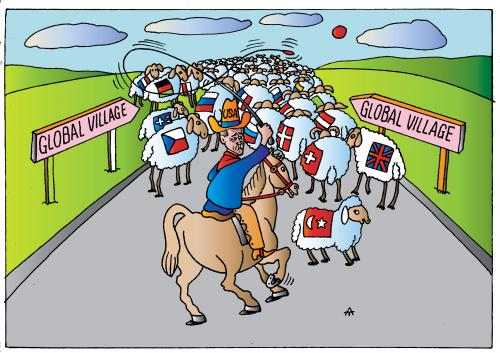
Germany definitely is a major player in the Global Village. You might have heard somewhat recently about At&t buying out Duetsche Telecom for $39 billion. As of 2006, DT had over 10 million customers, and now At&t has gained a good share of their telecommunication spectrum and changed the information landscape of the nation. That was a HUGE and will likely affect Germany while they settle their communication systems heading into the future.
When speaking about the global village It's my opinion that the Internet was no doubt the defining factor in connecting Germany with the world. However, I also think that it this happened indirectly, as most Germans use the Internet as an extension to the media they already consume.
The top viewed websites in Germany are almost exactly the Americas. Google, YouTube and eBay are all present. But numbers eight and ten are Spiegel and Bild respectively.
Spiegel and Bild are both German newspapers and have accompanying websites that you now see are among the most popular in the country. It's interesting to note that Germans don't get behind a website that has a "gimmick" some cool new technology. You know, YouTube has billions of videos you can watch and eBay lets you bid on things you can own -- All germans seem to want is better access to news. And thats where I believe German citizens separate themselves from other countries. I know people in Germany, and I know that the people there, especially young adults, are extremely news savvy. They might not be on the cutting edge of each and every technology that emerges, but they are politically and economically skilled and in and Democracy things like this are imperative -- in order for a democracy to work citizens need to be intelligent and educated in order to make decisions. Thats where Germans excel, there is a reason there is an extremely high standard of living there.
Unfortunately, we cannot all living within a golden mean like Germany. To live in equilibrium is something that I personally thoroughly respect and wish that the rest of the world could take note and be more forthcoming and adopting. the sad truth is, we're becoming lazier. Even recently, if there was a topic I knew very little about I would simply "wikipedia" that topic ( Look see it even has its own label). That, in essence, has got to be one of the worst consequence of the Internet. As information becomes easier and faster to obtain, I can imagine this trend taking its toll on the citizens of the world. Of course access of information is a great thing, but at what cost?










